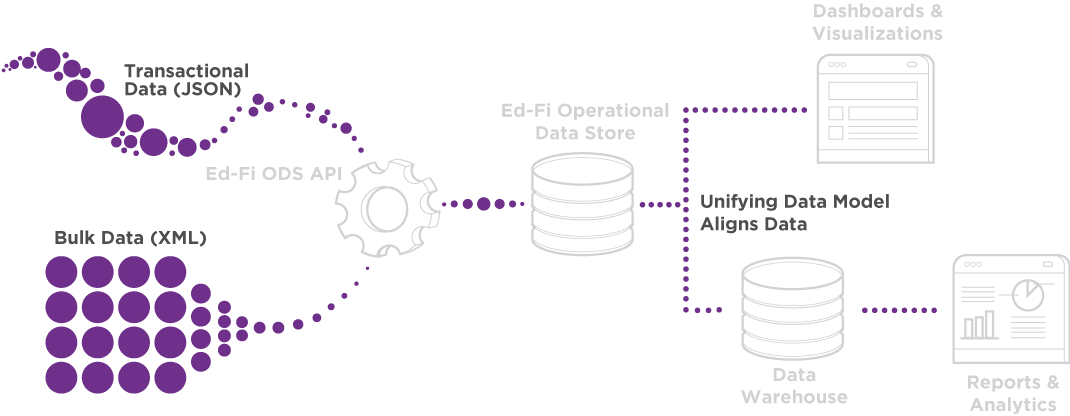A newer version of the Ed-Fi Data Standard is new available. See the Ed-Fi Technology Version Index for a link to the latest version.
Developers' Guide - Overview
Ian Christopher (Deactivated)
Overview
A primary component of Ed-Fi technology is an educational data standard that empowers educators with real-time, actionable information on every student in their classroom, school, or district. The Ed-Fi Data Standard integrates and organizes raw education data and information from a broad range of data sources so it can be sifted, analyzed, and put to everyday use. With the Ed-Fi Data Standard, educators are equipped with the information they need to understand the individual needs of students so that they can address those needs on the first day of school. In addition, on-demand access means that action plans for students can be monitored and refined throughout the school year.
Most important, the Ed-Fi Data Standard can be implemented in any school, school district, regional education service agency, or state education agency today.
The Ed-Fi Data Standard v2.2 aligns with Version 7.1 of the Common Education Data Standard (CEDS) developed by the National Center for Education Statistics (NCES). The Ed-Fi Alliance works closely with NCES to support the CEDS effort. Ed-Fi Alliance team members actively participate in CEDS technical and stakeholder groups.
Ed-Fi Data Standard in Action
The foundation of the Ed-Fi Data Standard is a Unifying Data Model (UDM), which is an enterprise data model of commonly exchanged and shared K–12 education data. The model is expressed in UML and includes entities that will be easily recognized by people in the education field: students, teachers, assessment results, attendance, and many others. The role of the UDM is to harmonize the information model and data types across all facets of Ed-Fi technology. This means that the Ed-Fi Data Standard components discussed in this document share common models and data definitions with all other Ed-Fi technology components such as the /wiki/spaces/TT/pages/18645319 and the Ed-Fi Dashboards.
A companion Extensible Markup Language (XML) data exchange framework supports the sharing of student data among disparate source systems, such as gradebook applications, curriculum and lesson planning systems, and benchmark testing and reporting systems. The data exchanged among these systems can include records on students’ grades, absence rates, transcripts, and standardized test scores. The Ed-Fi Data Standard is vendor-neutral and can work with any hardware and software platform.

Conceptual view of an education technology solution
The technology in state, district, and school environments consist of disparate components like transactional information systems, databases, data warehouses, reporting systems, and so on—all of which must exchange information. The Ed-Fi Data Standard provides a solution for data interchange and a secure foundation for enabling interoperability. The figure above shows a conceptual overview of where the Ed-Fi Data Standard fits in a typical technology environment.